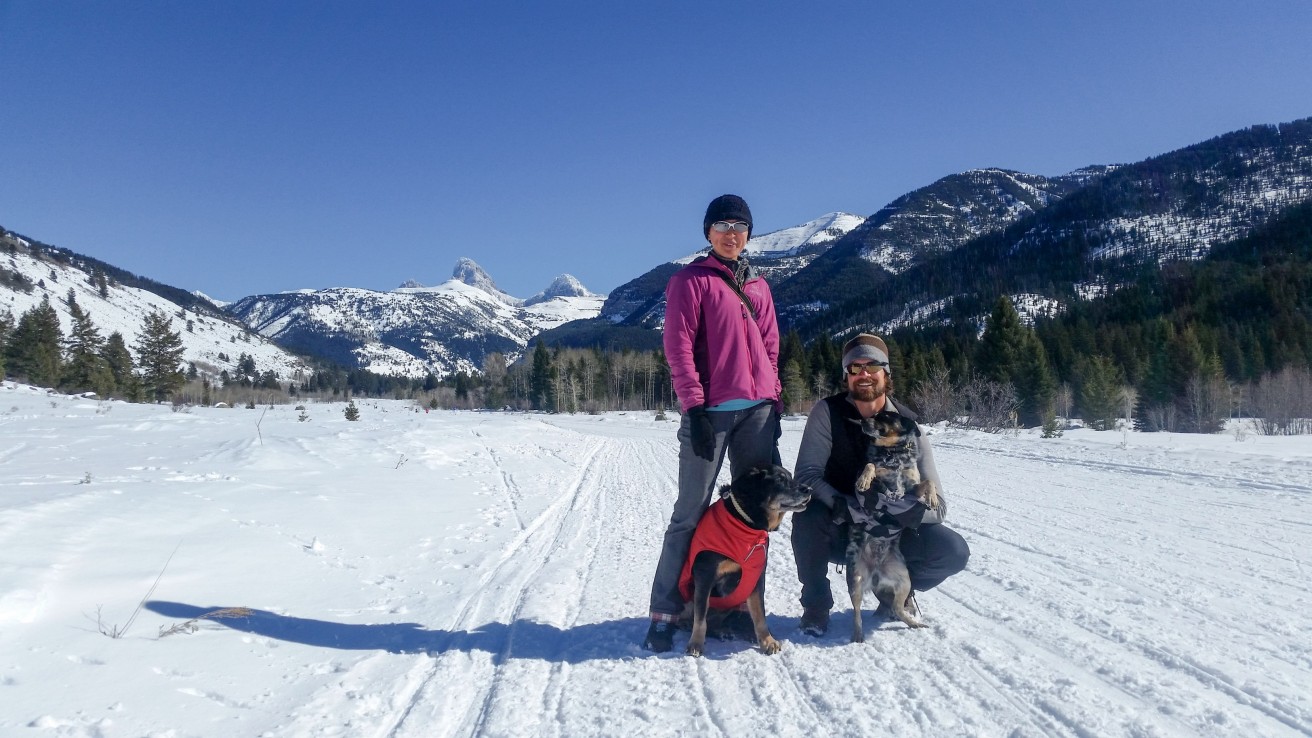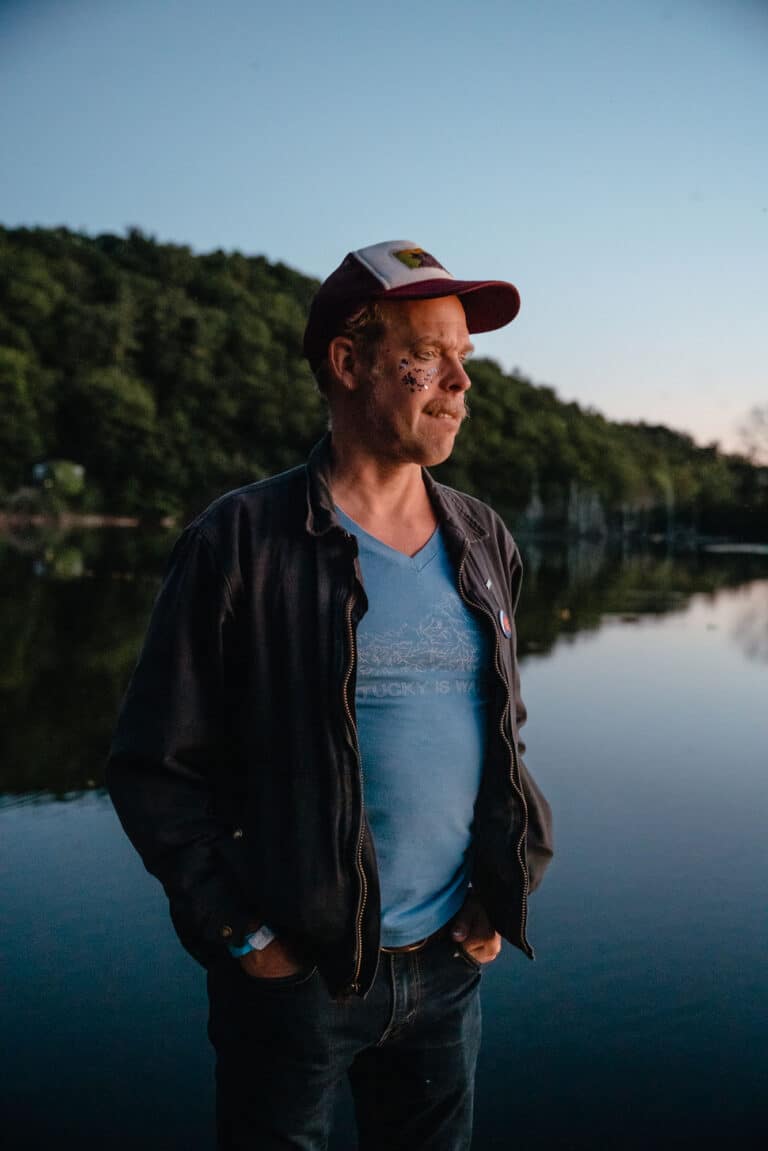In this month’s installment of ‘Off the Beaten Path’ we caught up with Ching Fu and Jerud Crandall, an Asheville couple that’s criss-crossing the country in a solar powered camper pulled by a pick up truck that runs on waste vegetable oil.
To date, their inspiring journey—meticulously documented in an online project they call Live Small | Ride Free—has taken them to the desserts of the Southwest, the imposing Cascades Mountains, the Pacific Northwest coast, the Rocky Mountains of Colorado and Montana and far beyond.
Check out our exclusive Q & A with Ching below to find out how this rambling couple has made their dream life of paddling, hiking and mountain biking across the great American landscape a reality.
BRO: What inspired you to leave home and take up a life on the road?
Ching: We didn’t want to wait until we were retired to explore beyond our 2-week long vacations. There’s a lifetime of outdoor destinations to visit and time was becoming more and more our enemy. Life was great in Asheville but living the traditional lifestyle wasn’t totally fulfilling; we weren’t achieving what we wanted by staying in one place and living the way we were brought up believing we had to.
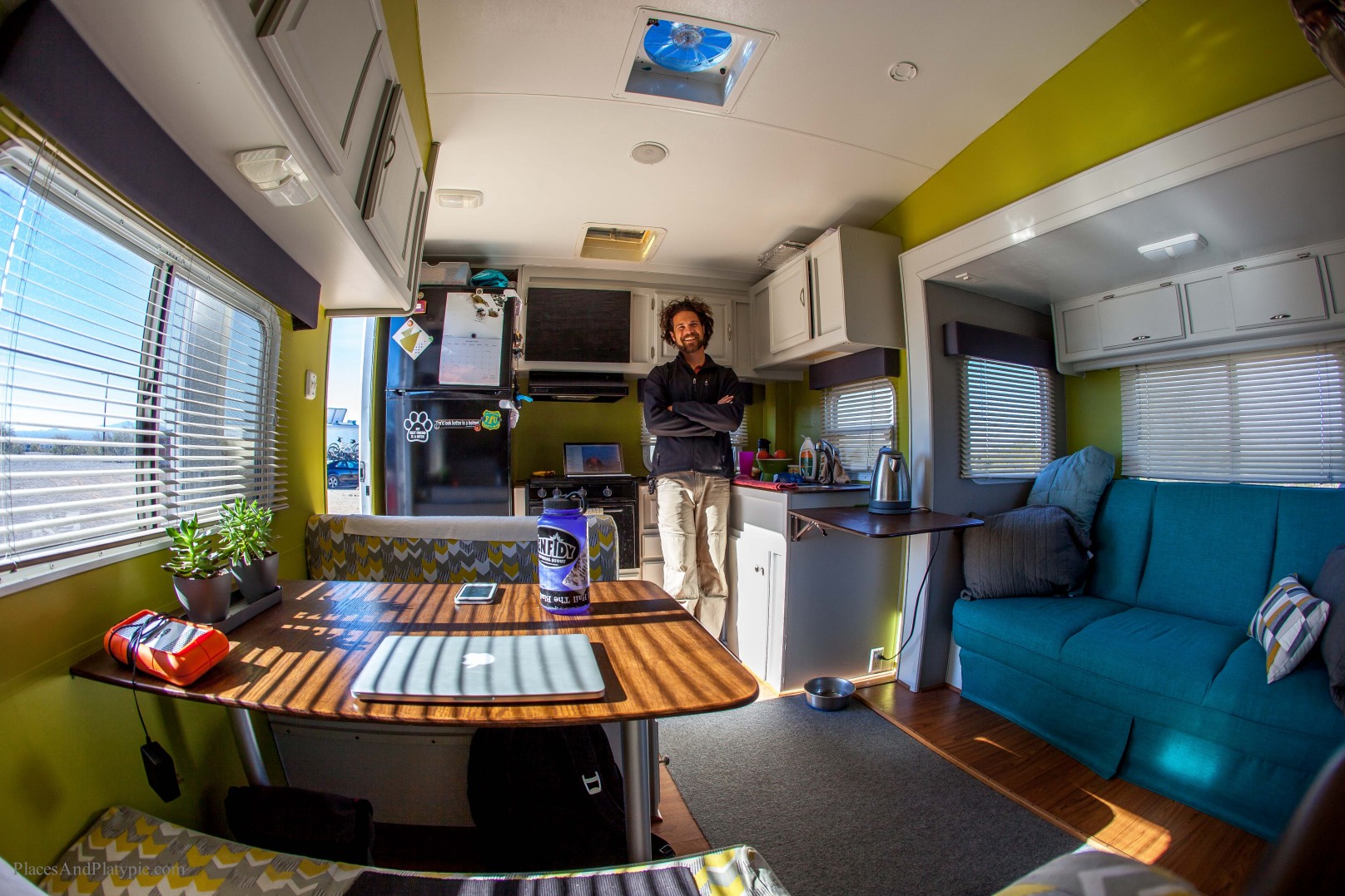
We yearned for a life that challenged us and also included a changing view from our bedroom window. After reading about others’ lives on the road, we decided we could make that work for ourselves and have an environmentally sustainable lifestyle.
BRO: Where are you from originally?
Ching: Jerud was born in Raleigh and moved around the Carolinas before ending up in Asheville. I’m from New York City, lived overseas for seven years, then returned to the states and eventually moved to Asheville – where we met.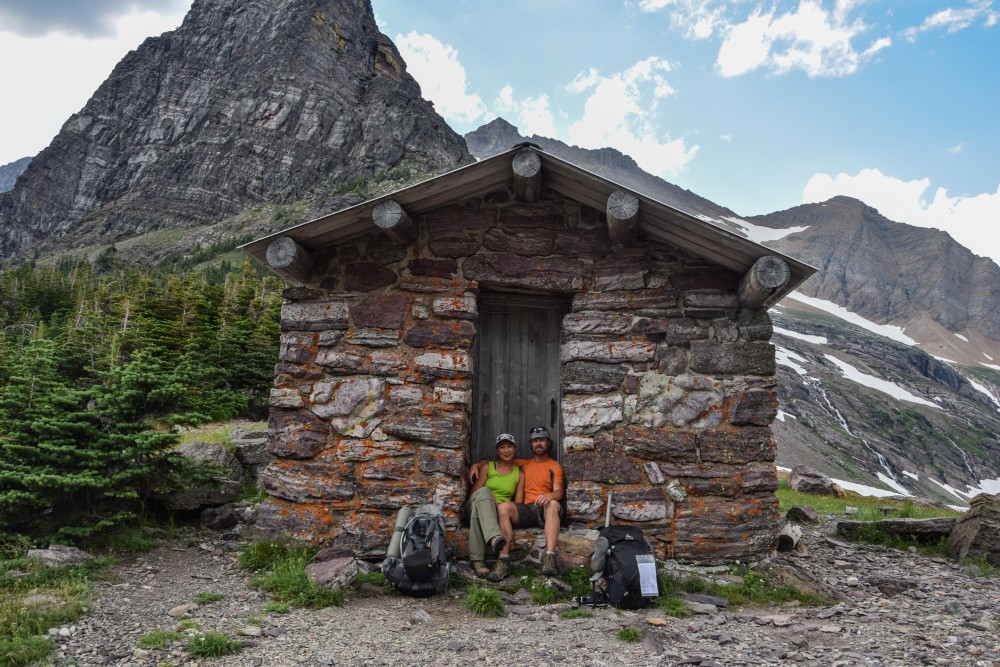 BRO: Where did your journey begin, and what kinds of places have you discovered along the way?
BRO: Where did your journey begin, and what kinds of places have you discovered along the way?
Ching: On March 21, 2015 we left Asheville. The first couple of stops on our way out West were to visit friends. From there we headed to a small town that sat at 7,000 ft. surrounded by snow covered mountains. We snowshoed and mountain biked there, all the while in shock at the places we now could call home.
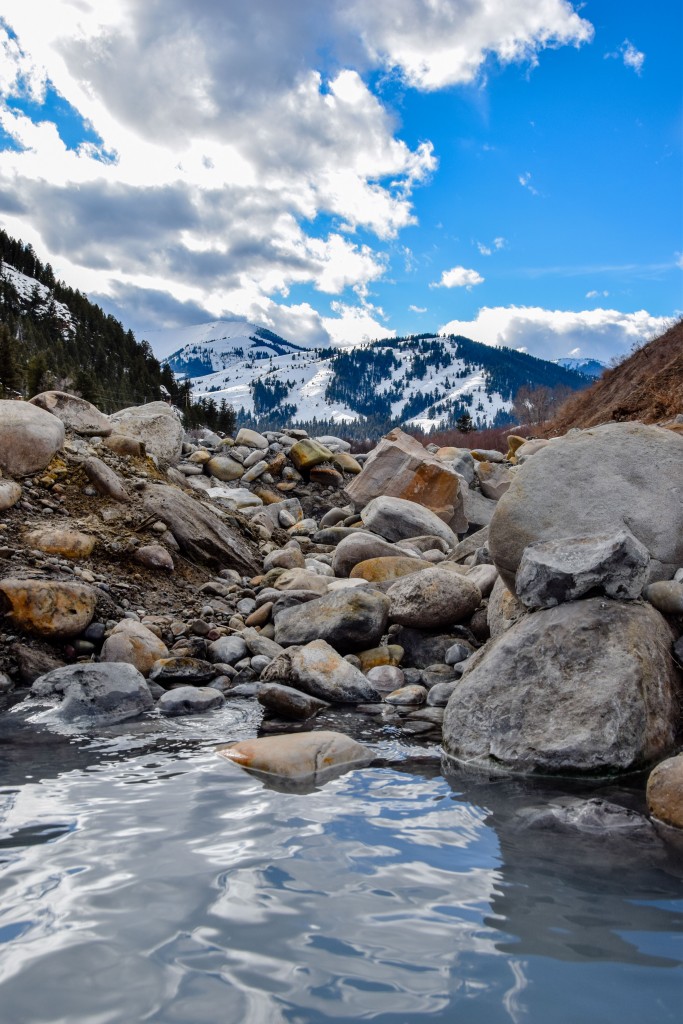
Our first month on the road ended with us visiting Great Sand Dunes National Park. We brought the dogs hiking on the dunes with us and Tybee thought it was the largest sandy beach she’d been to and just wanted to dig. From there we drove into Utah and camped amidst red rock features with names like Sitting Hen Butte and Seven Sailors. We explored natural bridges and arches, hiked through narrow canyons, found a large cave that resembled the mouth of a fish, mountain biked Moab and paddled a section of the Colorado River.
Our paddling continued while we were in Montana where we made new friends, took care of donkeys, and spent time over campfires with friends from Asheville who also live on the road. Our travels continued north and west, weaving in and out of national parks, meeting up with more friends and families.
We swam in alpine lakes and hiked in the dark up peaks with 360 degree views of the Cascade Mountains to watch the sun rise. Waves crashed around us as we made our way down the Pacific Northwest coast with us ogling rocks jutting out of the ocean and colonies of elephant seals chest bumping one another. New Year’s was celebrated in the Californian desert with about 80 other nomads in all types and sizes of vehicles, bonding over our shared wanderlust. Each place we go we scout out great mountain bike trails. Which brings us to where we are now, riding slickrocks with the cliffs of Zion behind us.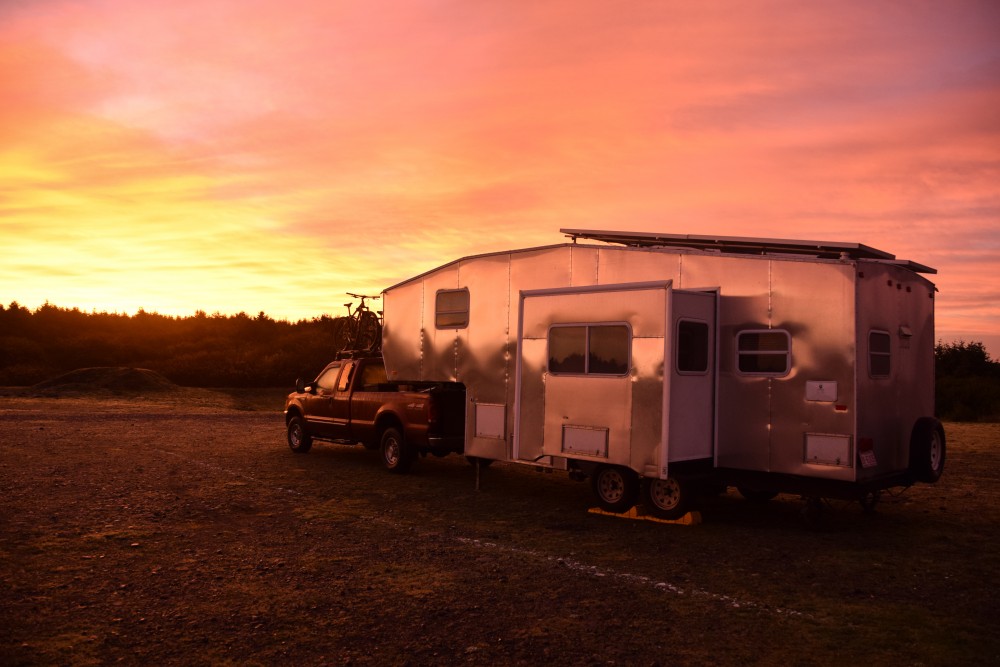 BRO: Any favorite destinations?
BRO: Any favorite destinations?
There’s a favorite something at almost all the places we’ve been to and there’s still so much we haven’t seen. We do have a few that have stood out so far. Salida, CO was a small town in the Rockies that had snow, mountain biking and paddling all in one place. Mt. Baker-Snoqualmie National Forest in Washington had great hikes and lakes to swim in. And the Oregon coast was beautiful, particularly the Cape Perpetua area.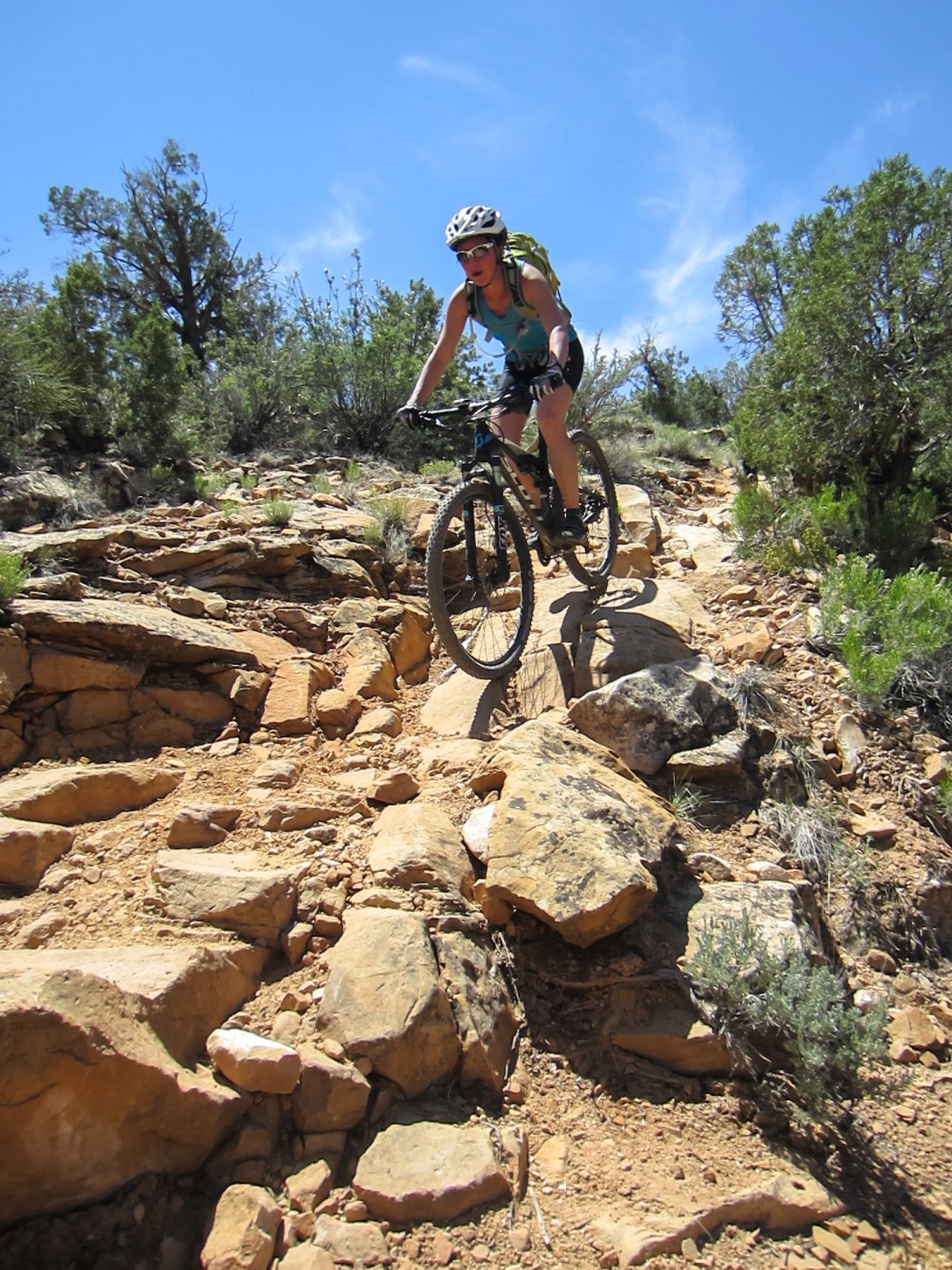 Ching: Tell us about your travel companions.
Ching: Tell us about your travel companions.
Live Small Ride Free consists of Jerud, me, and our two dogs – Tybee, 13-year-old lab/rott mix who adores the water and Tyki, a 3-year-old blue heeler mix who loves bird watching. The dogs have really enjoyed life on the road.
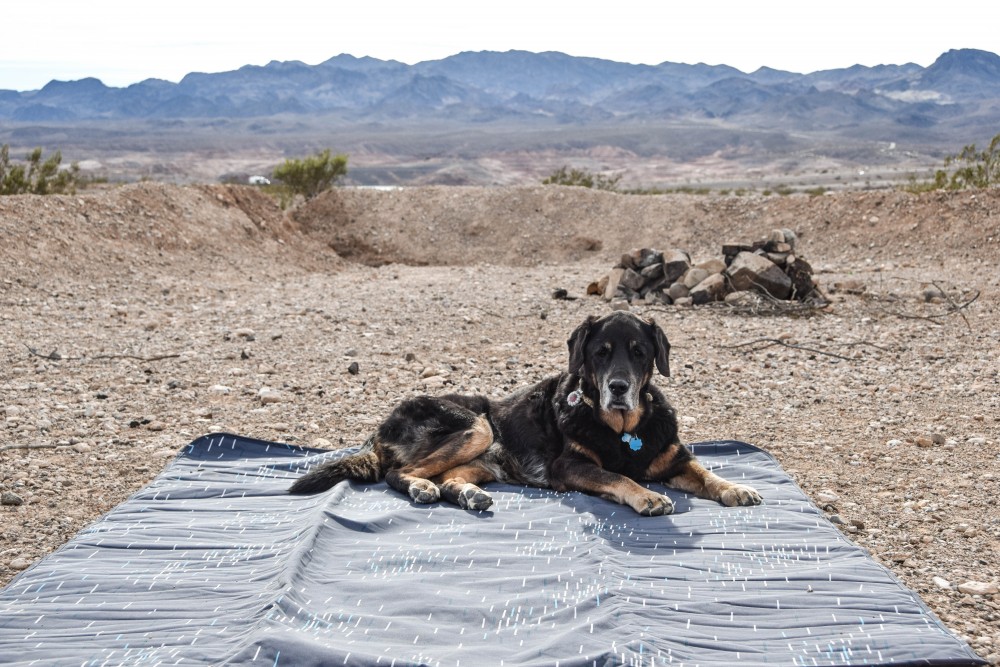 We get to spend more time with them, which has been especially wonderful and important as Tybee ages. They get to see, smell and explore new areas, and they are able to roam free around the places we stay.
We get to spend more time with them, which has been especially wonderful and important as Tybee ages. They get to see, smell and explore new areas, and they are able to roam free around the places we stay.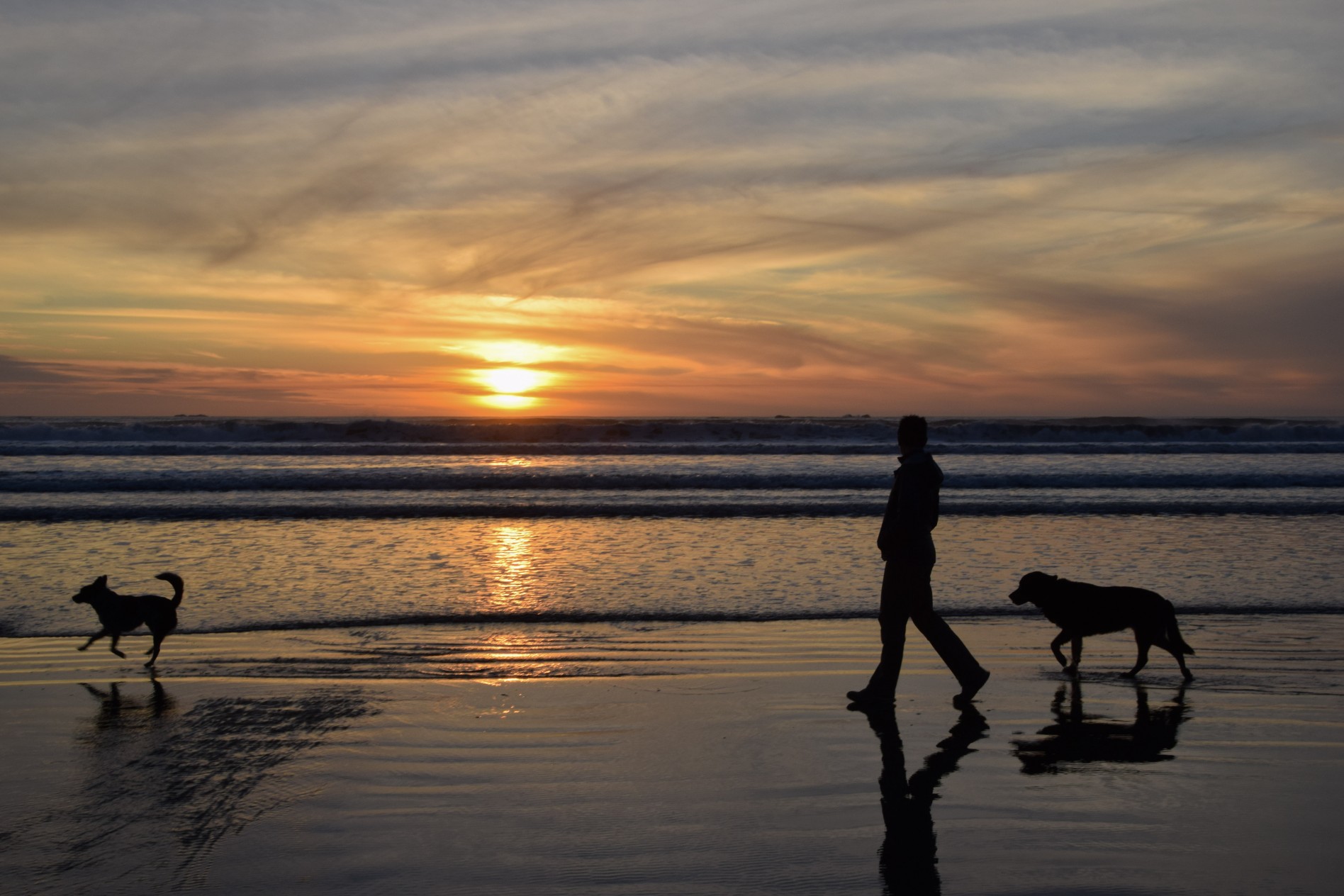 BRO: What sort of outdoor activities have you partaken in while out on the road?
BRO: What sort of outdoor activities have you partaken in while out on the road?
Ching: Nothing makes us happier than being immersed in the outdoors. This was the main reason why we moved into a home on wheels and mainly dry camp on BLM land. We brought a lot of outdoor gear with the goal to be more than weekend warriors. Our outdoor activities so far have included: mountain biking, road biking, hiking, paddling, backpacking, rock climbing, trail running, snowshoeing and snowboarding. 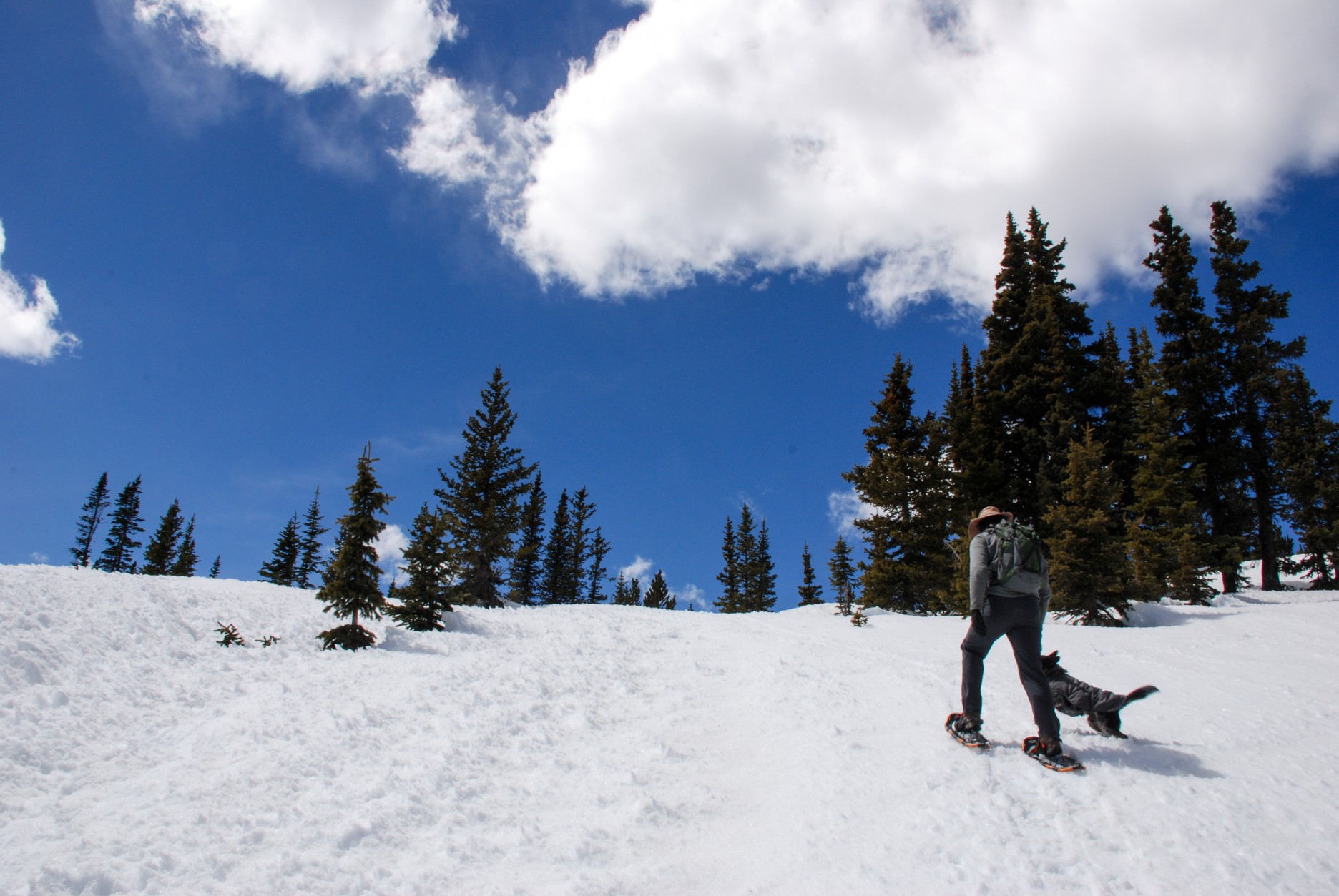 Having the options to participate in a variety of outdoor activities is great because if we’re in an area that doesn’t have great trails for riding but has wonderful paddling opportunities, we pull out our packraft; it may be too snowy for hiking but perfect for snowshoeing.
Having the options to participate in a variety of outdoor activities is great because if we’re in an area that doesn’t have great trails for riding but has wonderful paddling opportunities, we pull out our packraft; it may be too snowy for hiking but perfect for snowshoeing.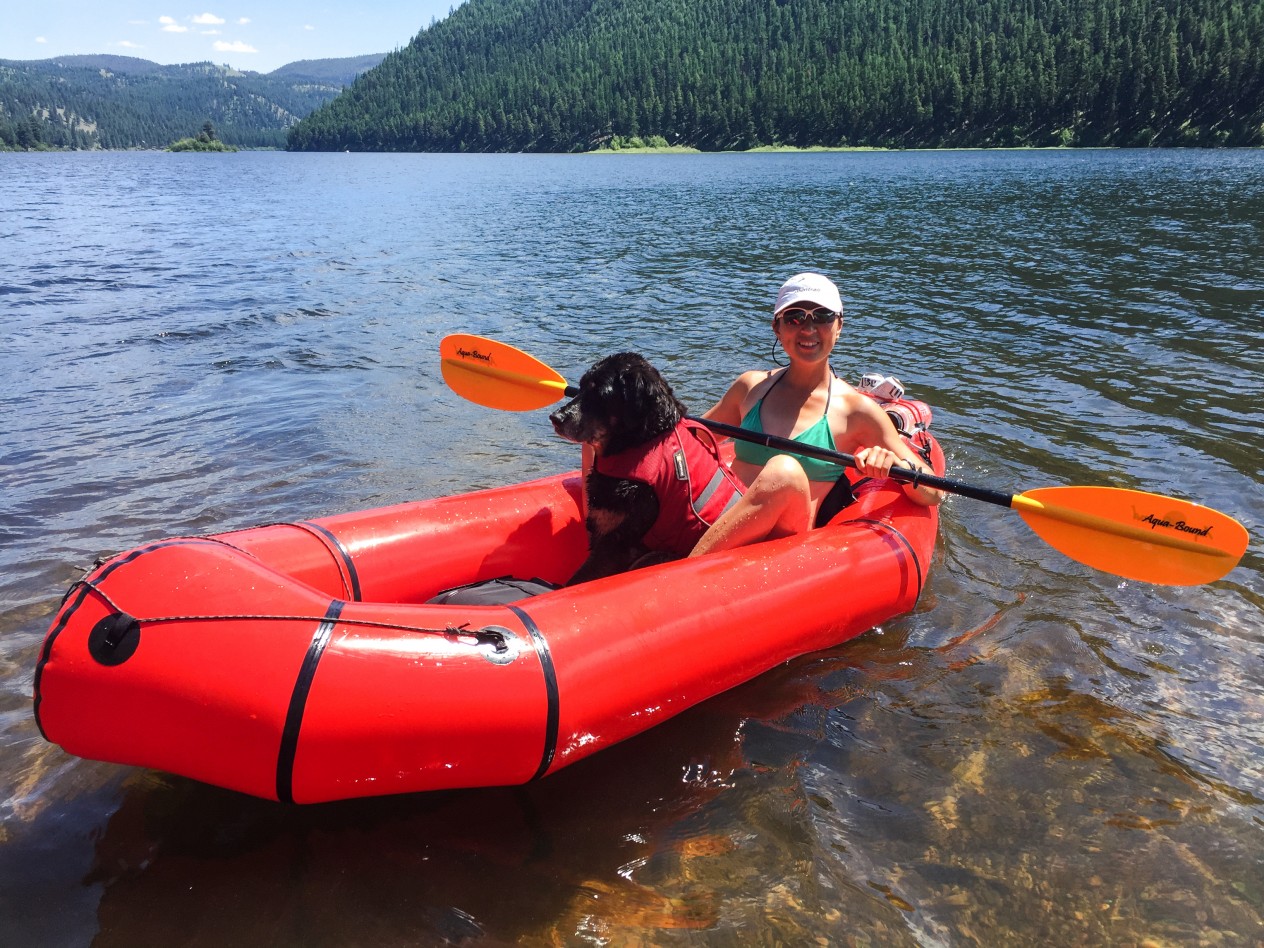 BRO: Your journey is a little different from some of the other folks we’ve covered in our ‘Off the Beaten Path’ series because it’s been powered by alternative fuels. Tell us how you’ve made this work.
BRO: Your journey is a little different from some of the other folks we’ve covered in our ‘Off the Beaten Path’ series because it’s been powered by alternative fuels. Tell us how you’ve made this work.
Ching: Our home is a 25 ft. long fifth-wheel RV that we gutted and rebuilt ourselves due to extensive water damage. It took us a year to finish the rebuild, and it’s still an on-going project as we make our home better. During the initial tear down we removed all the propane appliances that RVs normally rely upon and converted our RV to be all-electric. Our RV, aka Toaster, is outfitted with 1,220 watts of solar panels so everything inside is fully powered by solar.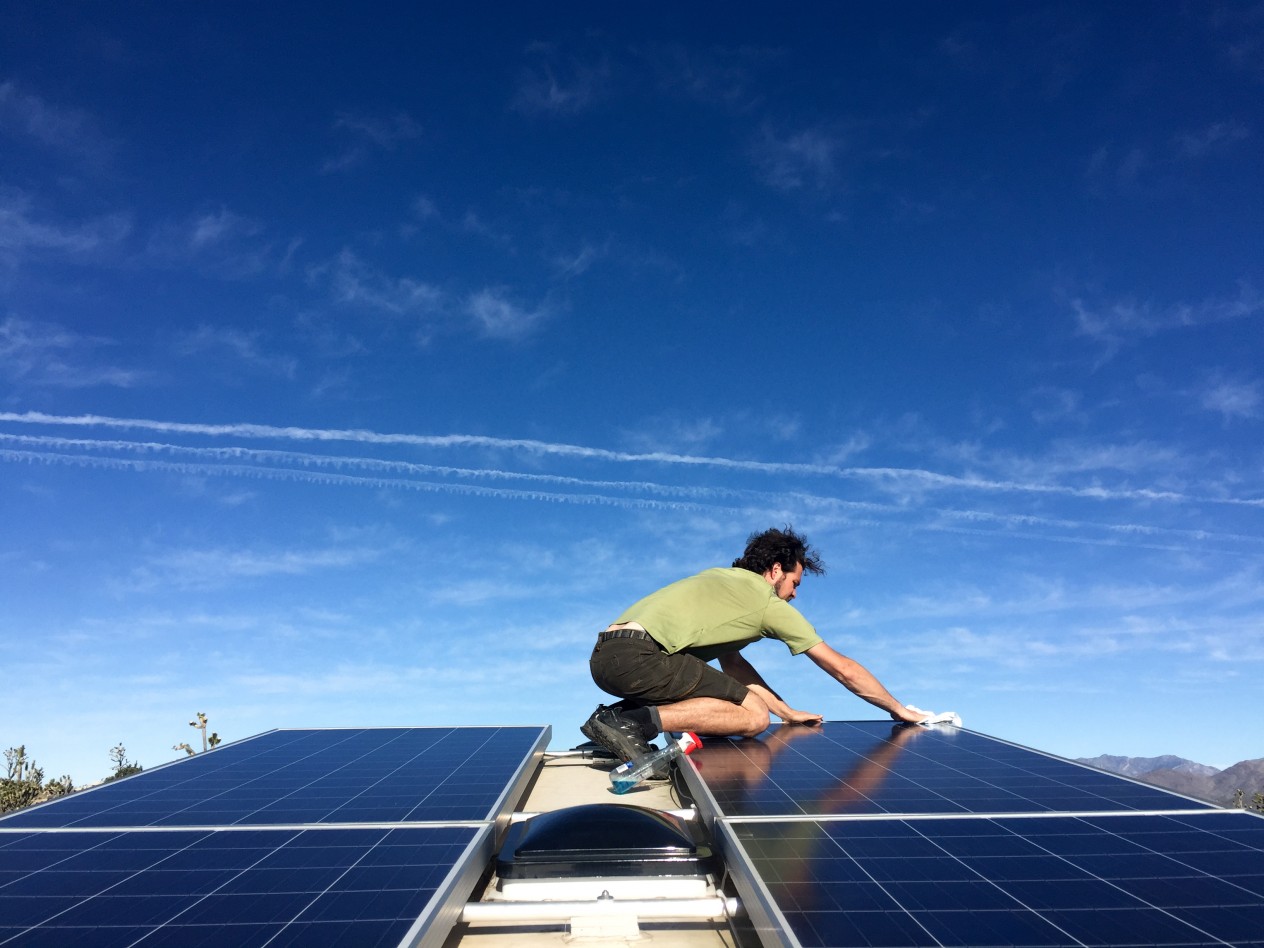 This is great because we can live without using a generator or being plugged into the grid for as long as we want. We also installed an Air Head composting toilet to get rid of the RV’s black tank and minimize our water usage.
This is great because we can live without using a generator or being plugged into the grid for as long as we want. We also installed an Air Head composting toilet to get rid of the RV’s black tank and minimize our water usage.
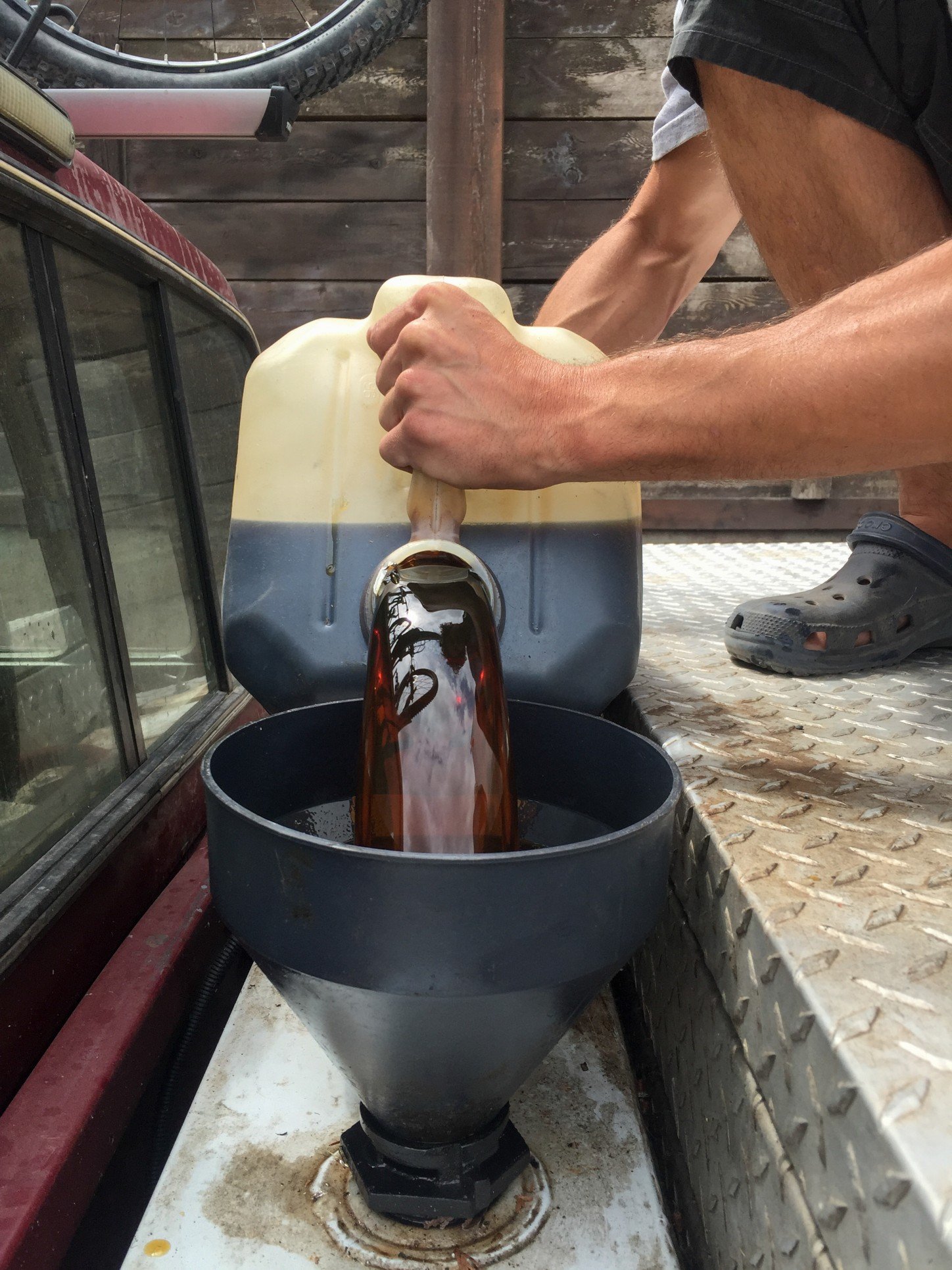 Our tow vehicle is a Ford F-250 that we converted to run off waste vegetable oil in addition to diesel. Our goal is to be fossil fuel free. We’ve pretty much succeeded with the Toaster, but it’s harder with the truck because finding used cooking oil isn’t as easy as it was years ago, especially being on the go constantly. But we’re strong believers that with our love for the outdoors comes our responsibility to take care of it. What better way to do it than by living in line with our environmental values as we explore nature?
Our tow vehicle is a Ford F-250 that we converted to run off waste vegetable oil in addition to diesel. Our goal is to be fossil fuel free. We’ve pretty much succeeded with the Toaster, but it’s harder with the truck because finding used cooking oil isn’t as easy as it was years ago, especially being on the go constantly. But we’re strong believers that with our love for the outdoors comes our responsibility to take care of it. What better way to do it than by living in line with our environmental values as we explore nature?
BRO: How do you prepare food while out on the road. Any favorite dishes?
Ching: With our residential electric fridge, electric cooktop, and other kitchen appliances, we’re able to cook just like we did back in our house. Although we don’t make as many elaborate dishes as we did before. We like to make our 40 gallon fresh water tank last 10 days, so we choose recipes that create the least amount of dirty dishes. Some of our favorite dishes are waffles, chia pancakes, homefries, Chinese Szechuan eggplant, oyster sauce broccoli, tofu with peanut sauce and Chinese noodles, Indian curries, and homemade pizza.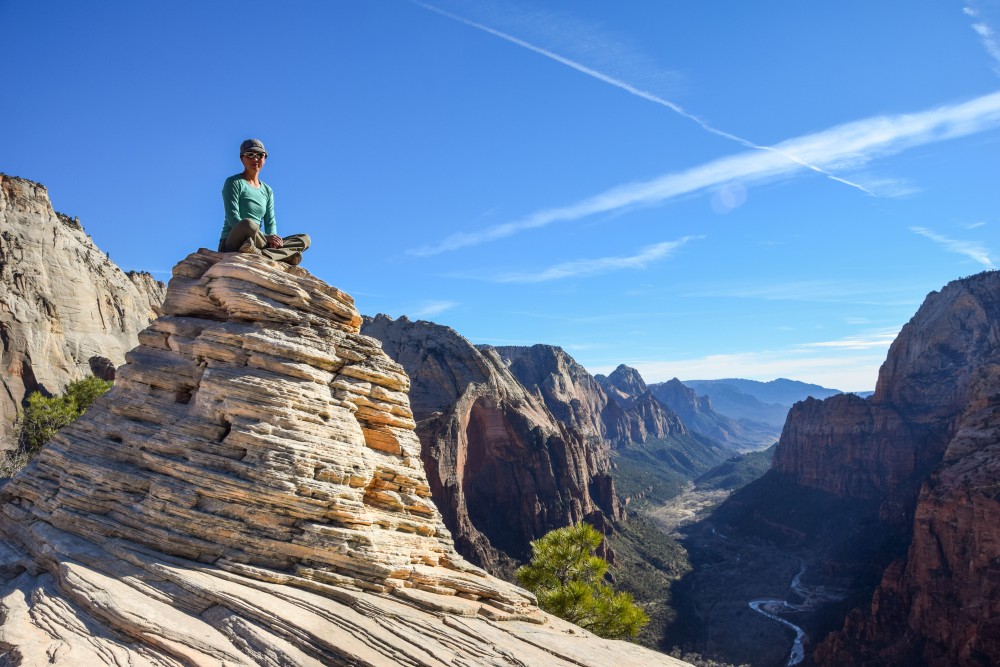 BRO: Can you tell us about some of the most interesting characters you’ve me while out on the road?
BRO: Can you tell us about some of the most interesting characters you’ve me while out on the road?
Ching: All the people we’ve met who also live full-time on the road have great stories of their own of how they got to where they are and why they’ve chosen this lifestyle. We’ve met lots of families with kids of all ages, couples and individuals. 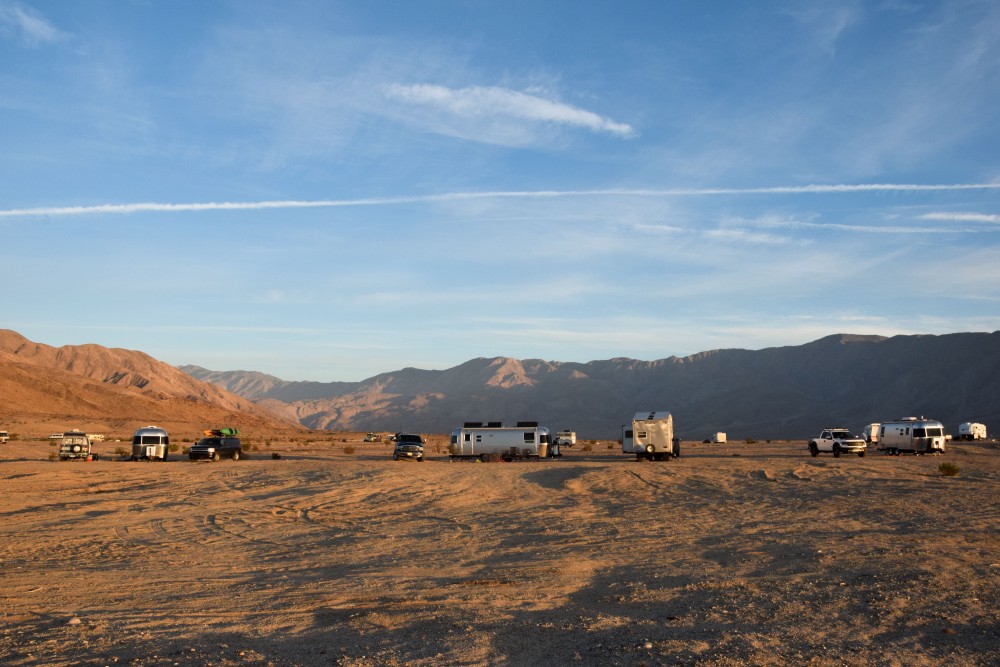 One couple hit the road separately, met, and started traveling together in one rig. Another couple started off traveling together, then mutually decided to part ways, but loved their nomadic life so much they each continued on in their own rigs.
One couple hit the road separately, met, and started traveling together in one rig. Another couple started off traveling together, then mutually decided to part ways, but loved their nomadic life so much they each continued on in their own rigs.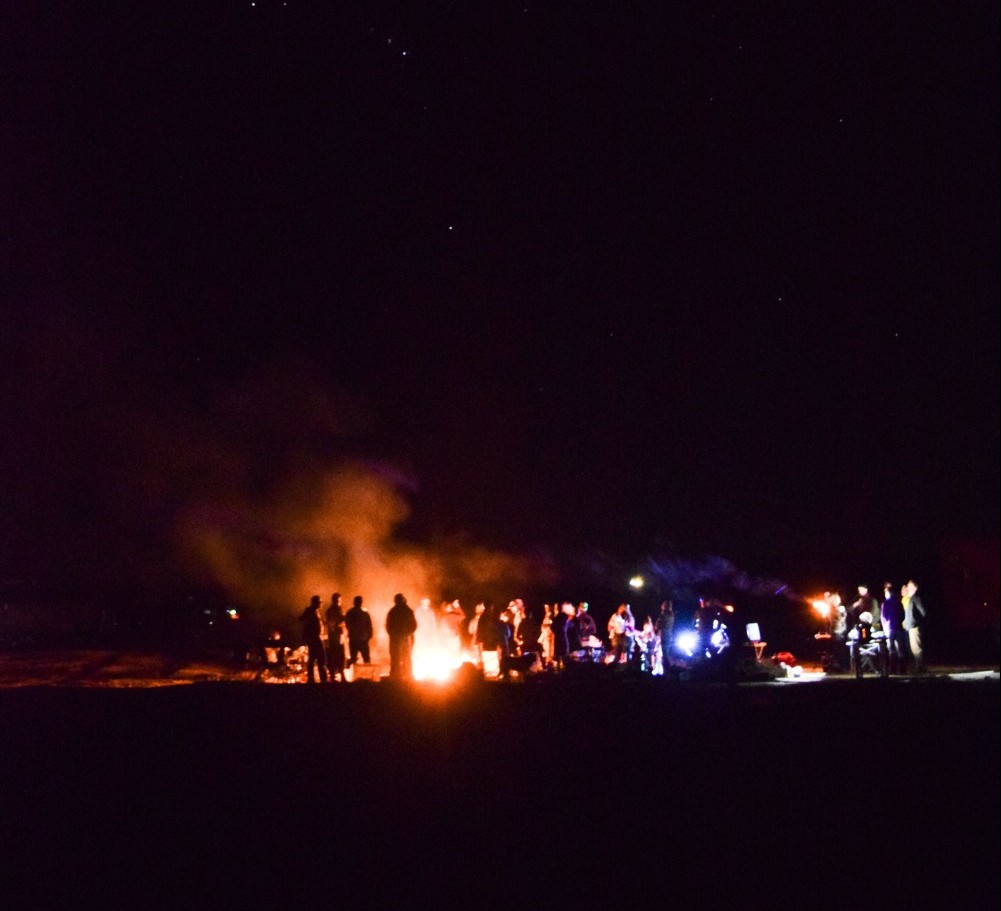 One individual runs his photography business out of his van that he also lives in full-time. Another person has been traveling with his dog for over five years, meeting up with friends along the way. The people we’ve met along our way had been one of the highlights of living on the road.
One individual runs his photography business out of his van that he also lives in full-time. Another person has been traveling with his dog for over five years, meeting up with friends along the way. The people we’ve met along our way had been one of the highlights of living on the road.
BRO: What is the most challenging or trying thing that has happened along the way?
Ching: We’ve definitely had our share of challenging moments. While staying in Utah we came back home to find that someone had run their rig into ours while we were gone.
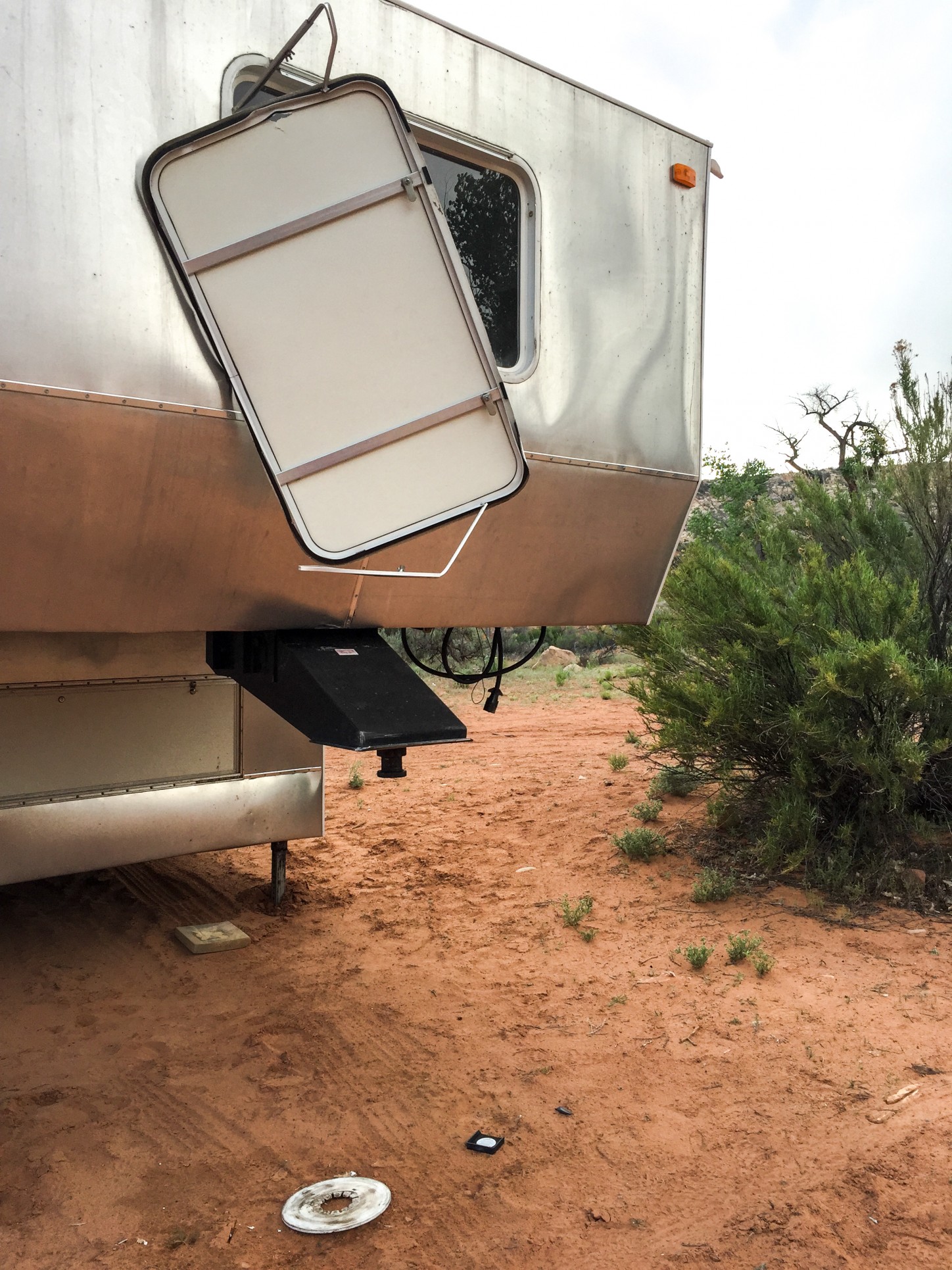 The damage wasn’t as bad as it could have been but it shifted our whole trailer sideways, freaked us out and our bedroom window cover got ripped off.
The damage wasn’t as bad as it could have been but it shifted our whole trailer sideways, freaked us out and our bedroom window cover got ripped off.
In Seattle, I had my touring bike and Tybee’s dog trailer stolen. Eventually my bike was found (sans many parts) and Tybee’s trailer was replaced through the kindness of a friend that I reconnected with accidentally via Craigslist. Funny thing is that the experience was overall positive because we had friends and many strangers reach out to us offering help in various ways.
Then in Mt. Baker-Snoqualmie National Forest, WA our first truck’s brakes died while we were driving up a mountain. To be able to call for a tow truck we biked 20 miles round trip to reach a payphone. After three hours on the phone with the roadside assistance company trying to get the person to understand where we were (it really wasn’t complicated), we eventually got the truck and RV towed back into town. This began the long process of finding a replacement truck because the old one was no longer worth repairing.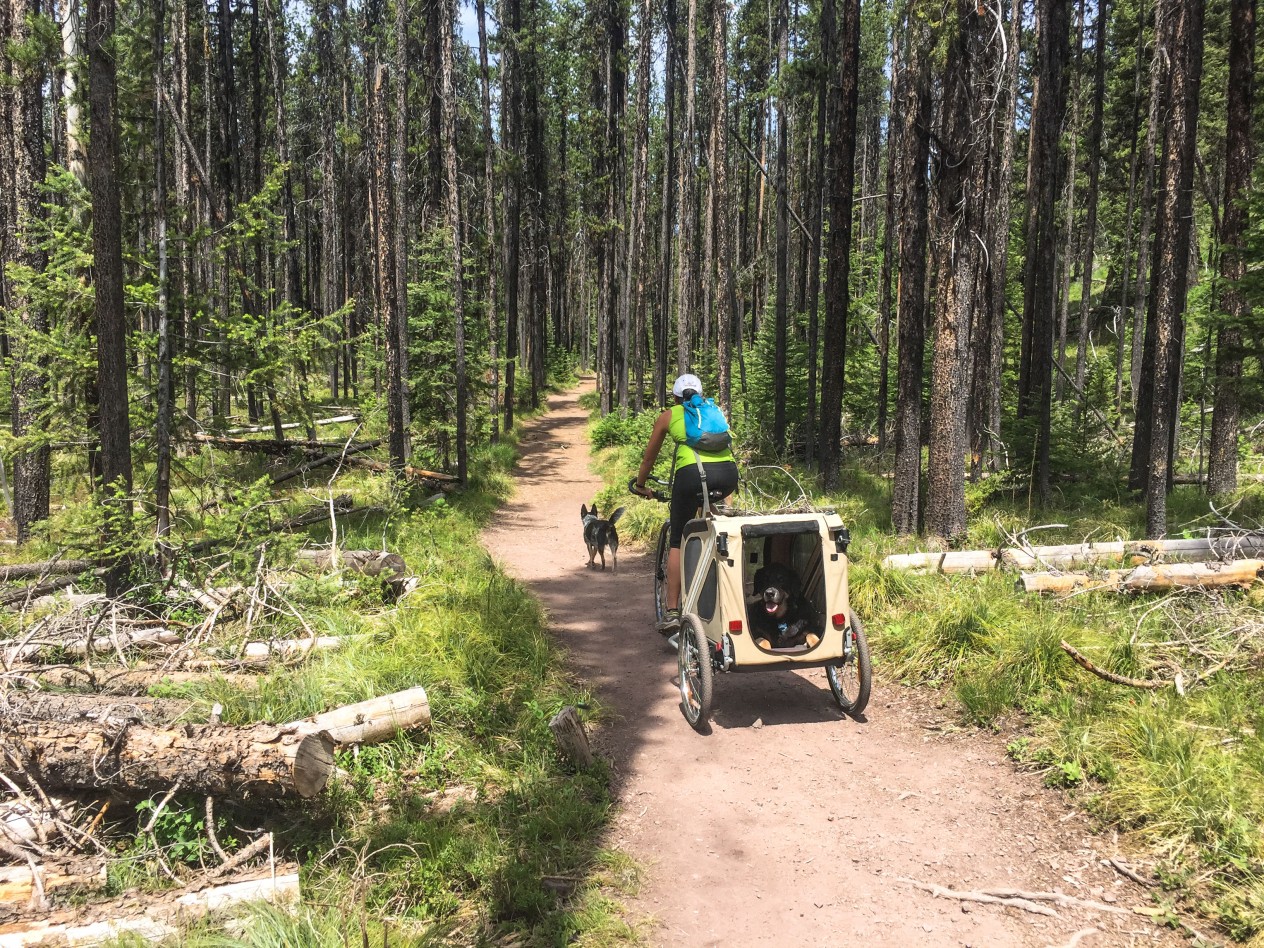 BRO: What advice would you give others who want to follow in your footsteps and take up the mobile, travel-based lifestyle?
BRO: What advice would you give others who want to follow in your footsteps and take up the mobile, travel-based lifestyle?
Ching: Don’t wait for things to be perfectly lined up to hit the road because you’ll end up waiting forever. The excuses you currently have are exactly that – excuses. All the people we’ve met who now live on the road, including us, at some time had used one or more of your excuses. But they wanted this life badly enough that they said “screw it” and went for it.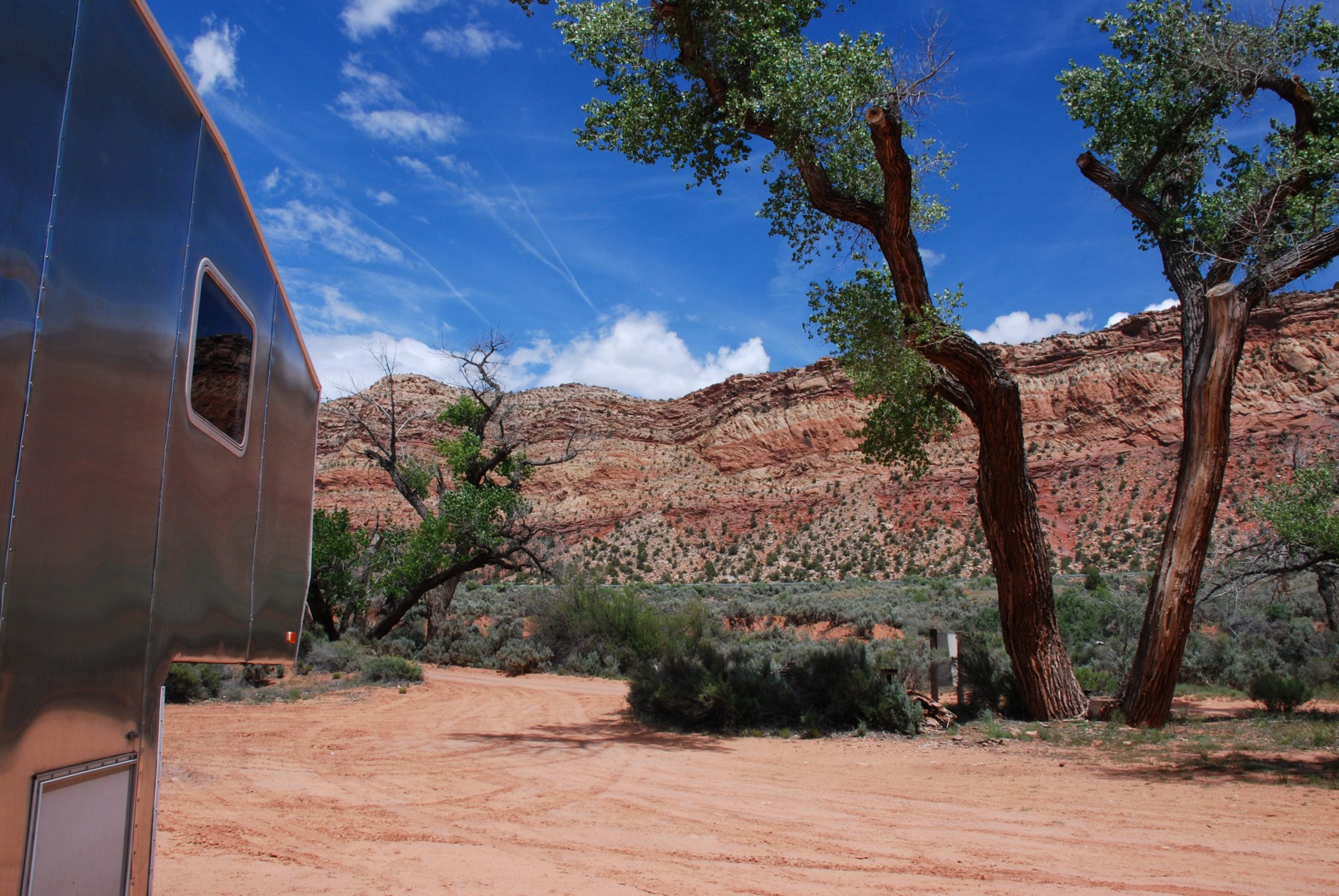 Bigger isn’t always better – we thought a 25 ft. long RV would be the perfect size for the four of us but we’ve realized that we would be just as comfortable in a smaller rig. That being said, we love our rig. We’ve put so much time and effort into making it ours that it would be hard to trade it for something else one day.
Bigger isn’t always better – we thought a 25 ft. long RV would be the perfect size for the four of us but we’ve realized that we would be just as comfortable in a smaller rig. That being said, we love our rig. We’ve put so much time and effort into making it ours that it would be hard to trade it for something else one day.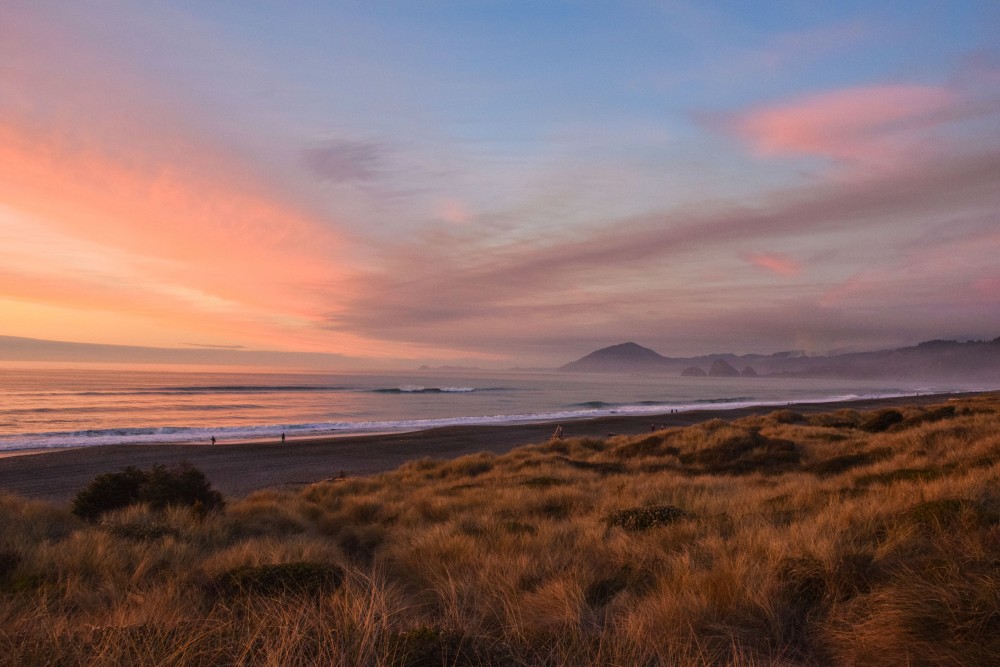 And most importantly: Living sustainably on the road is totally doable. We’re proof that you can live comfortably and partake in all the activities you want while living in a fossil fuel free home. Sure there are some hard moments, but it’s not an adventure if it’s easy all the time.
And most importantly: Living sustainably on the road is totally doable. We’re proof that you can live comfortably and partake in all the activities you want while living in a fossil fuel free home. Sure there are some hard moments, but it’s not an adventure if it’s easy all the time.
Learn more about Ching and Jerud and following along with their continuing adventures at their website, their Facebook page, and on Instagram.
[divider]Related Articles[/divider]
